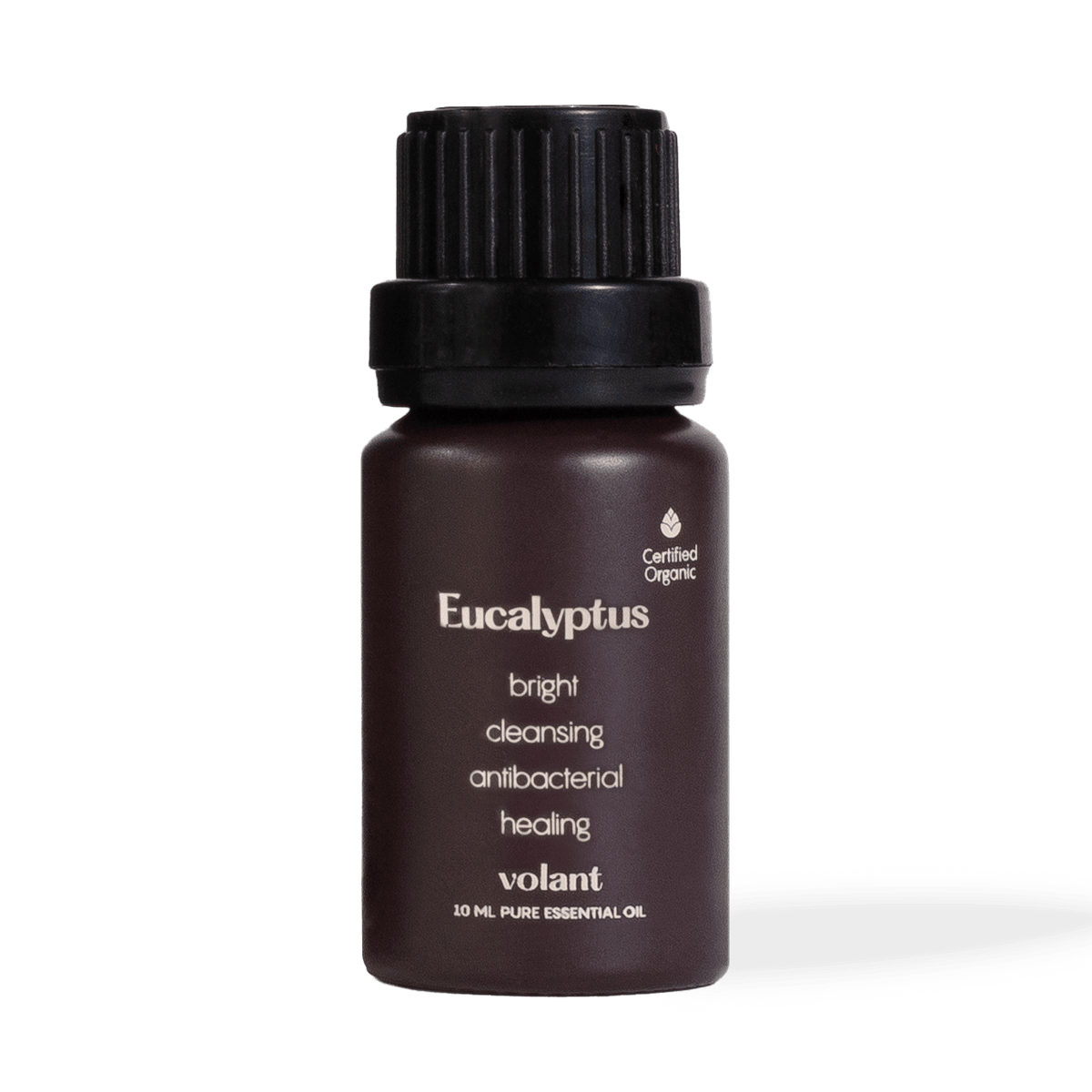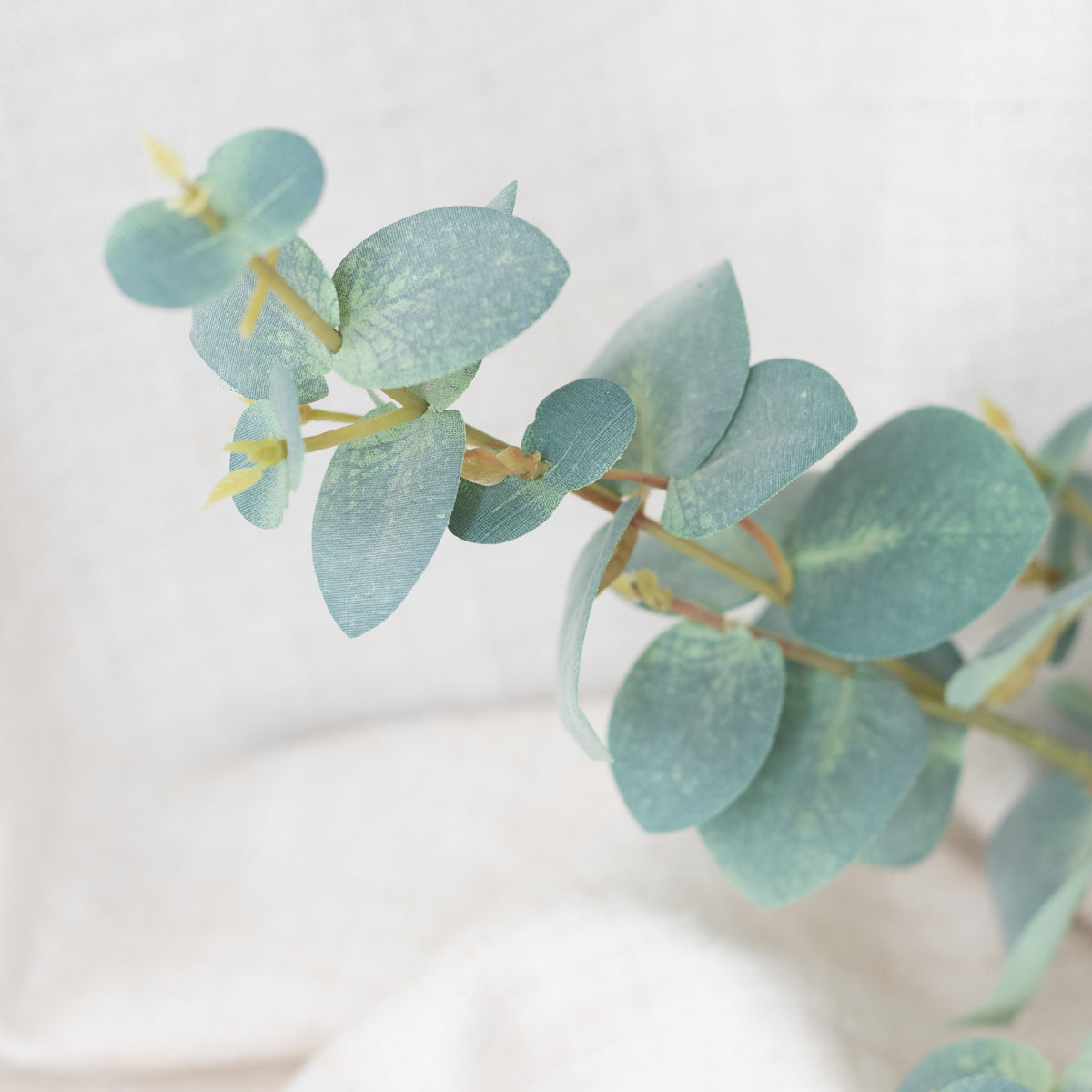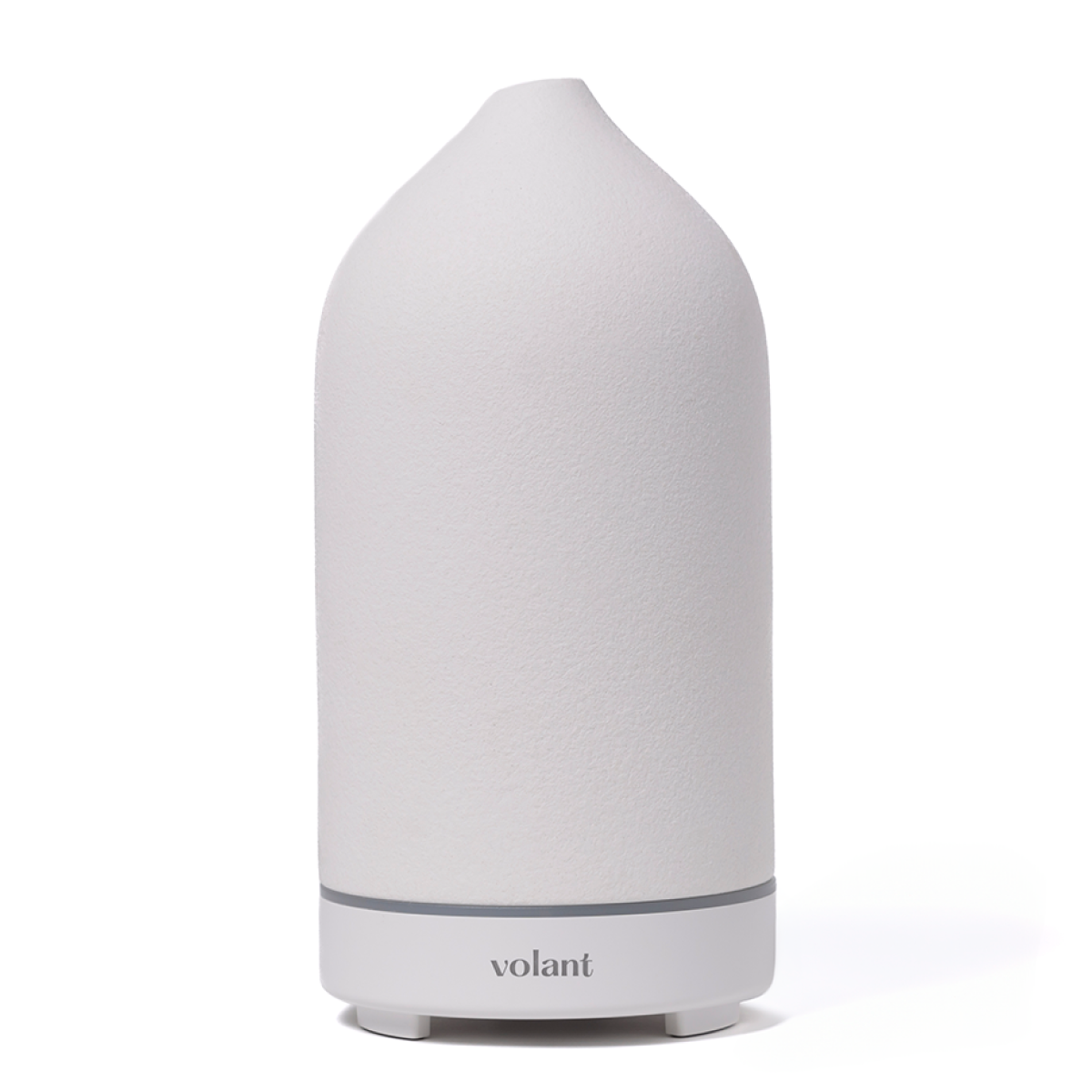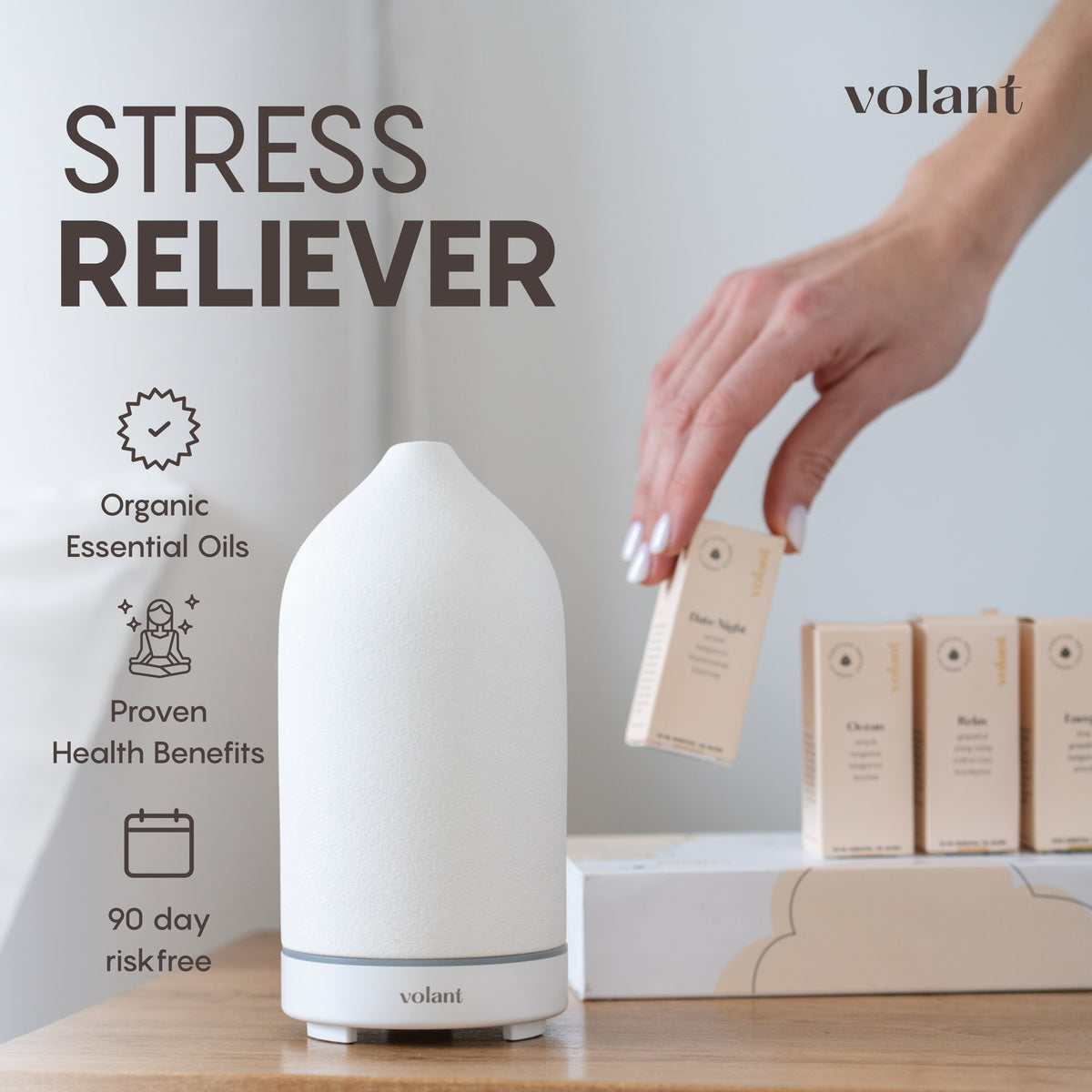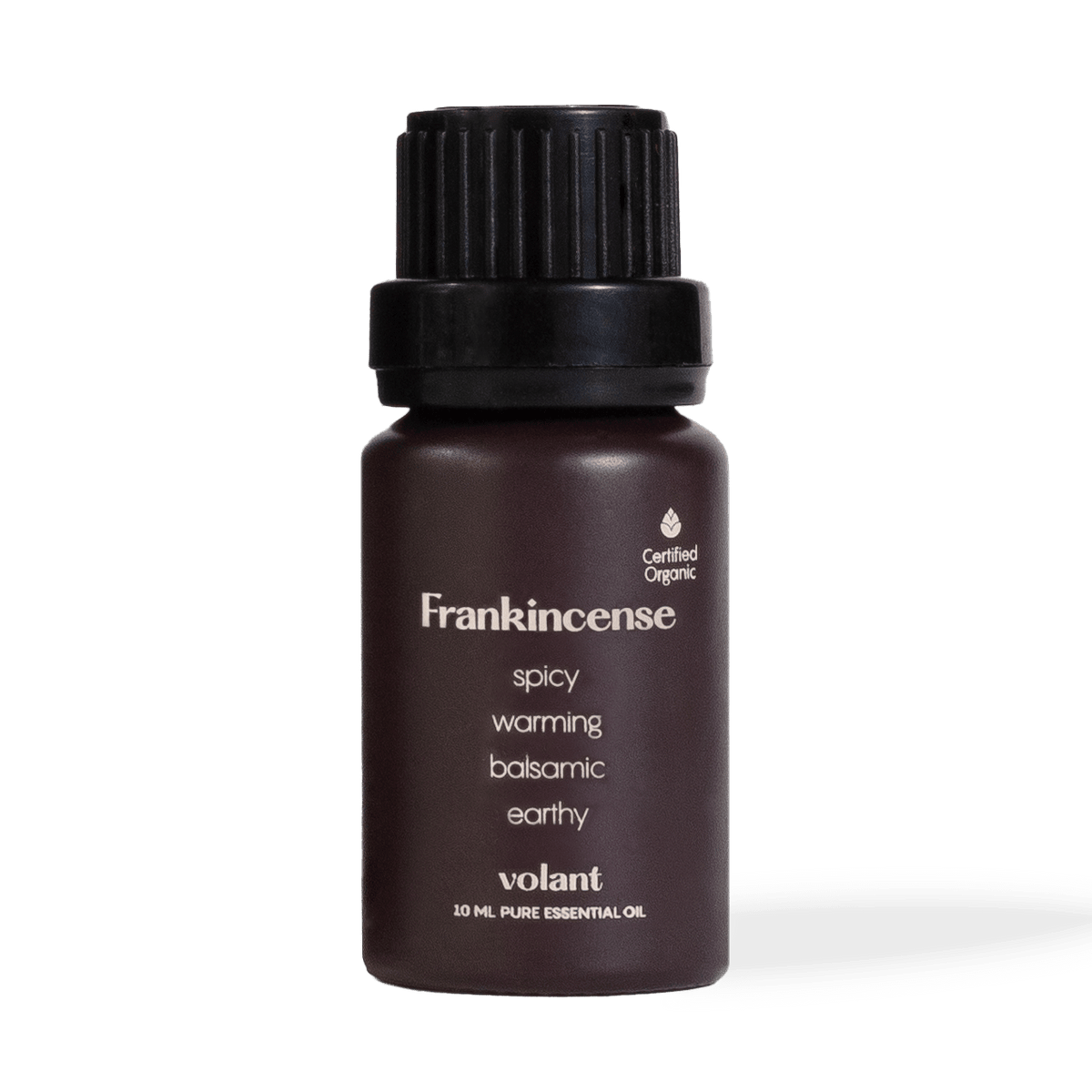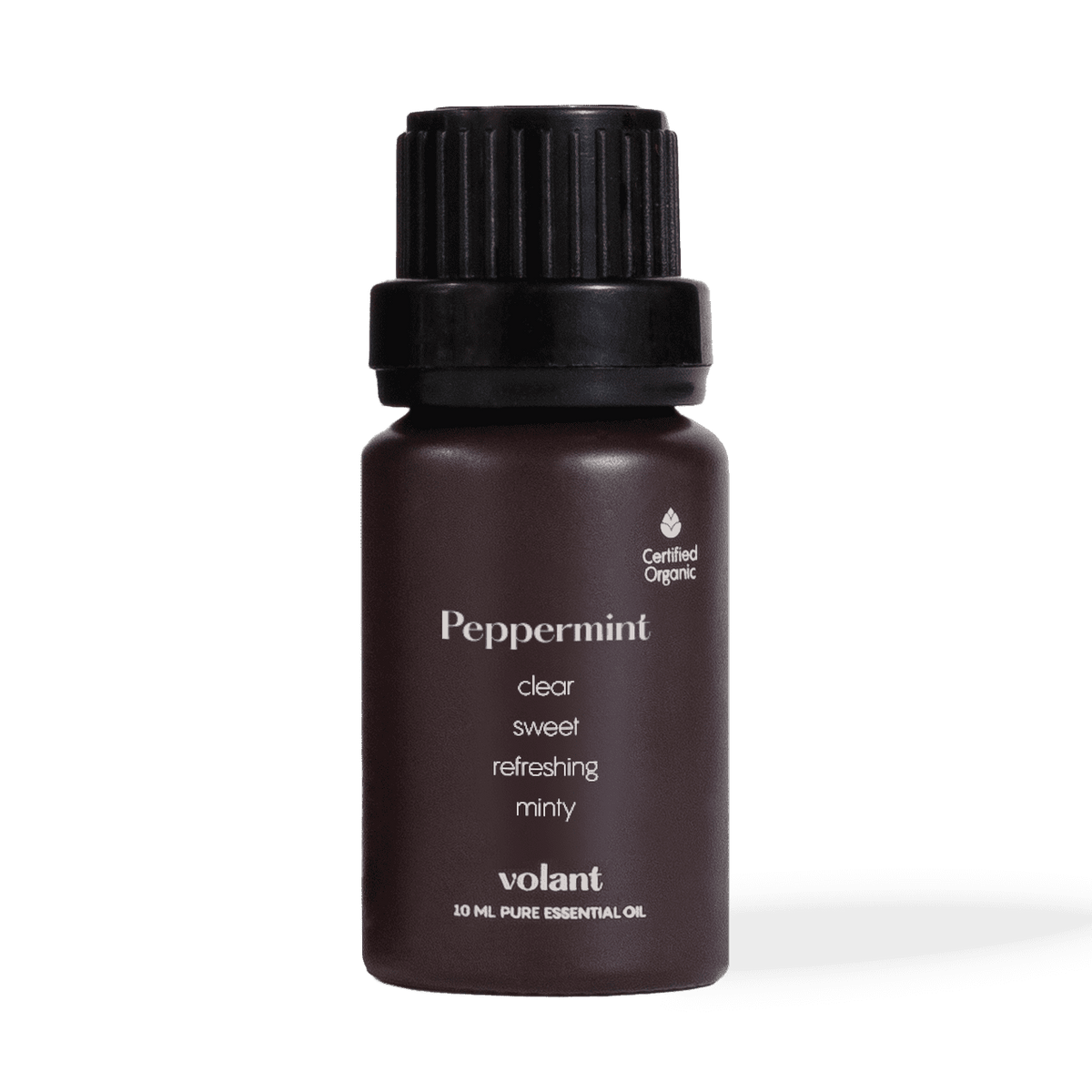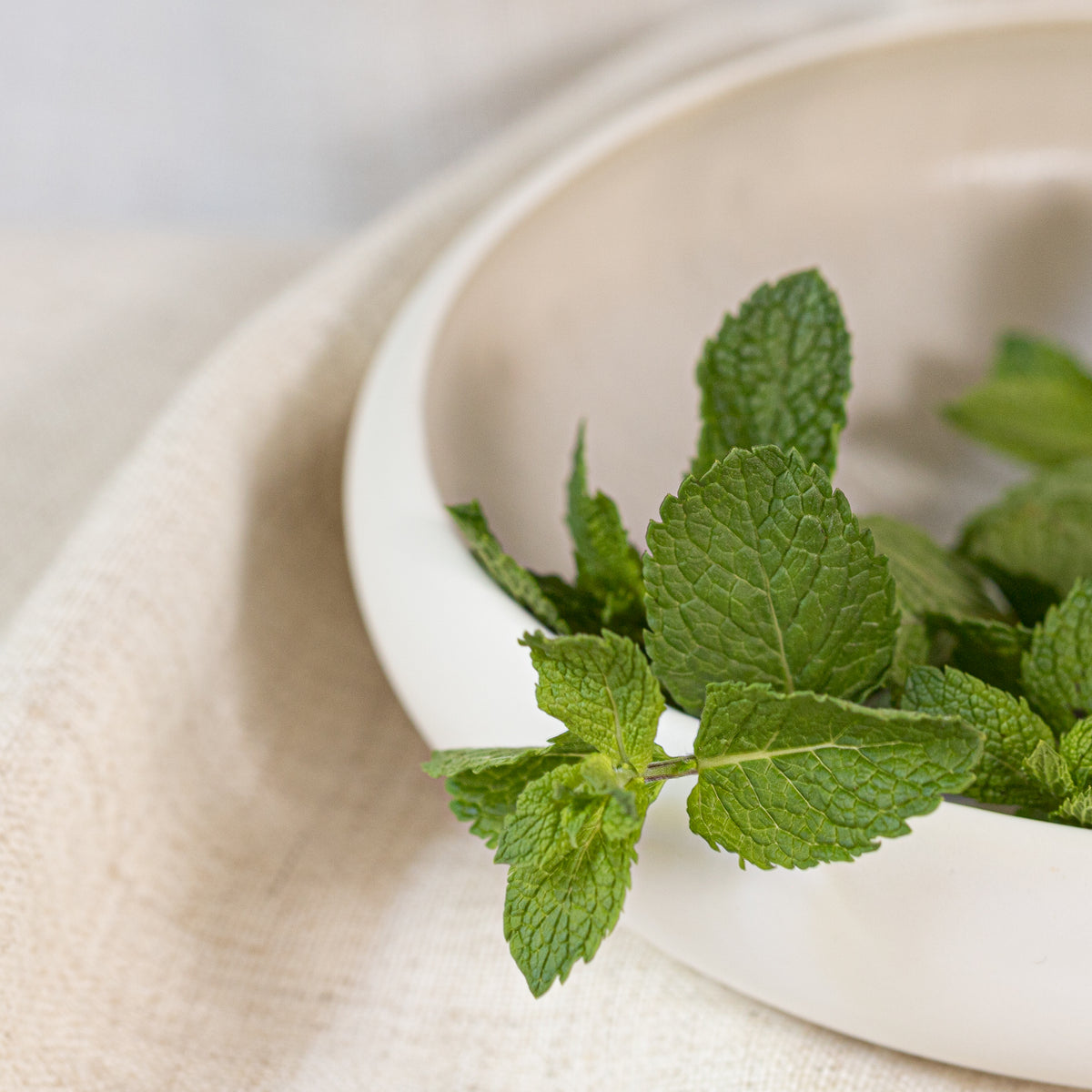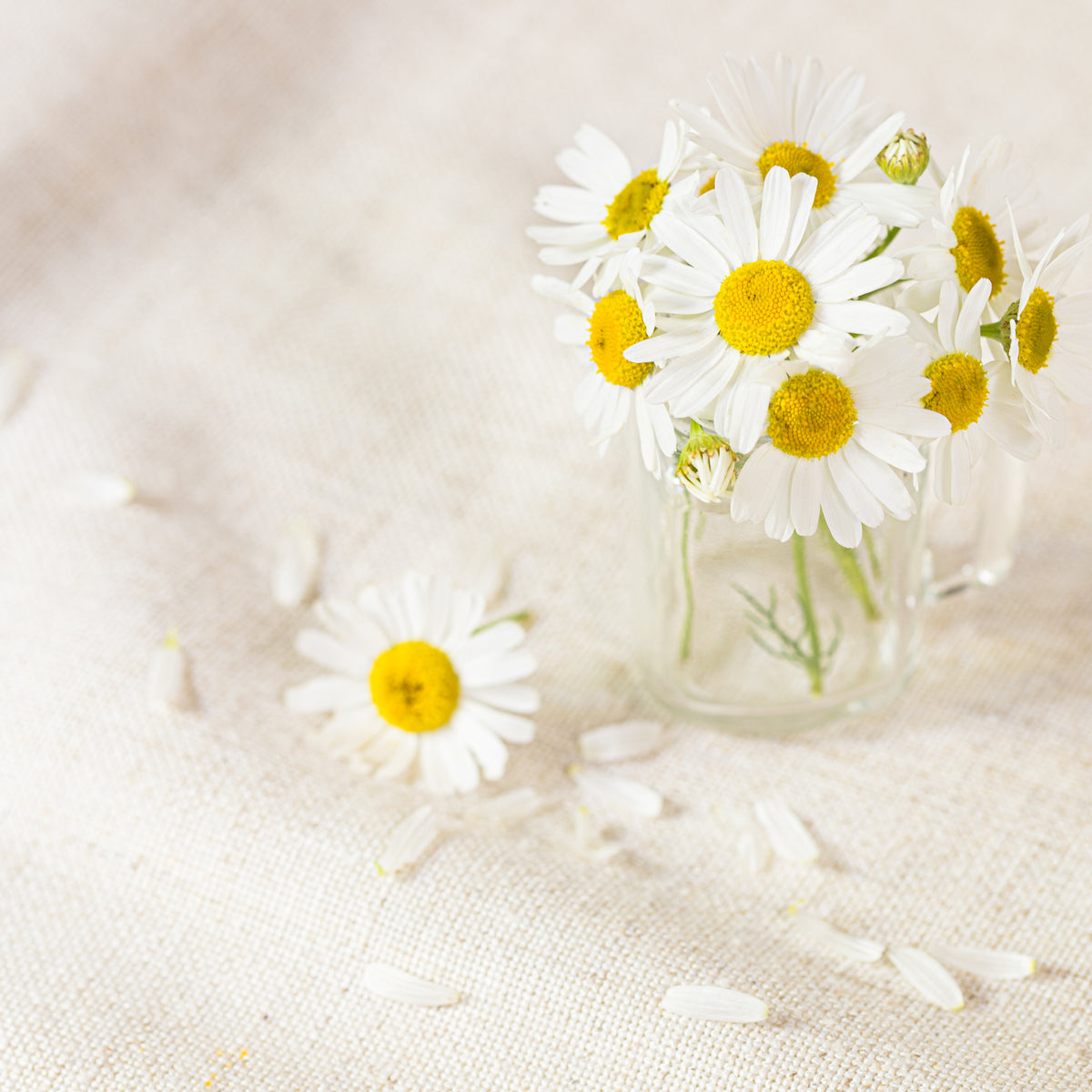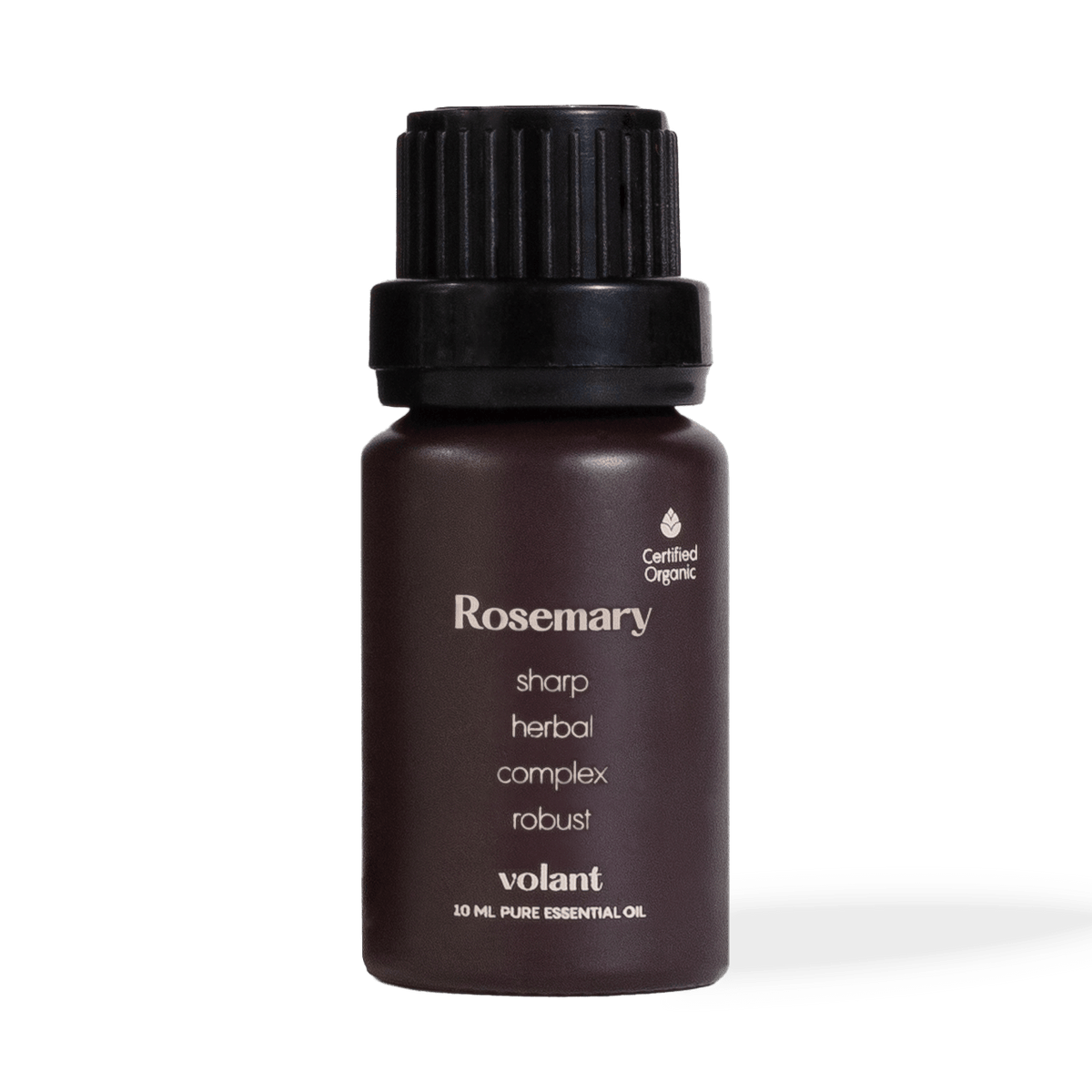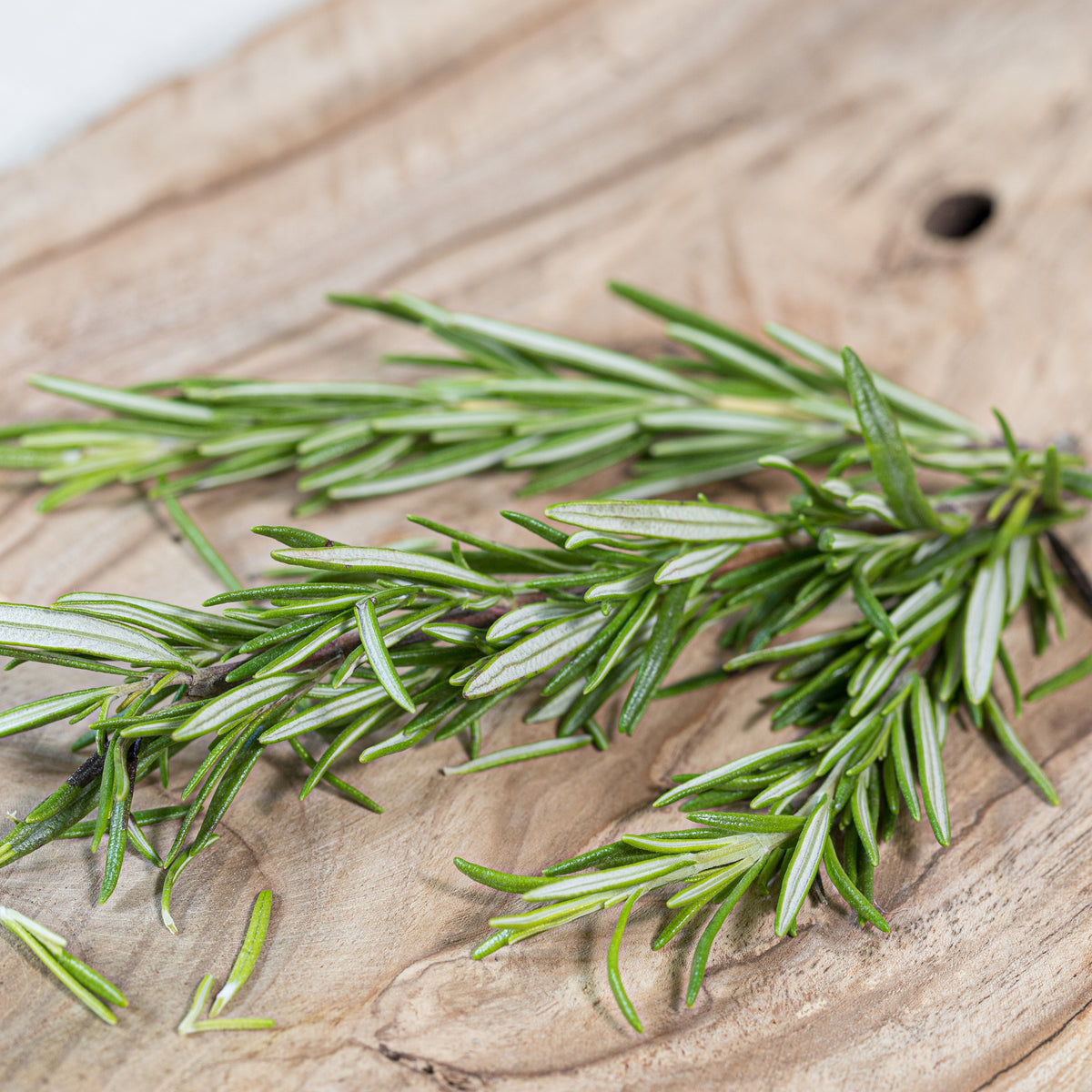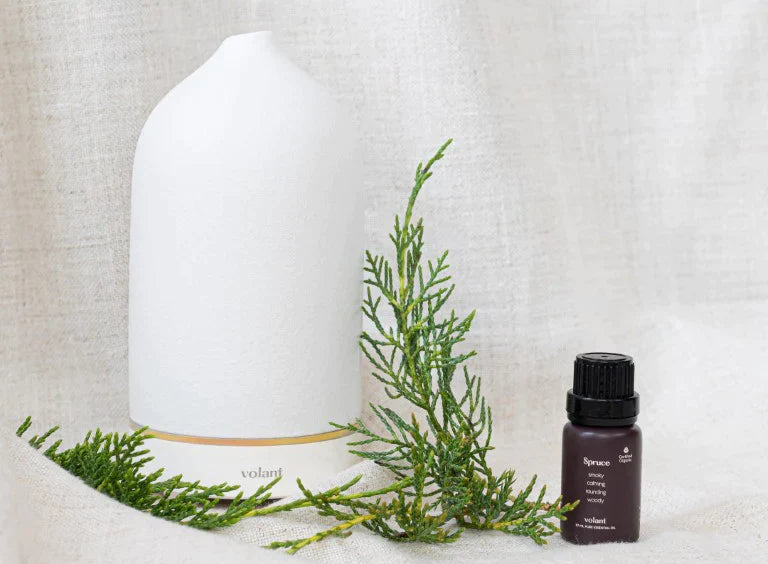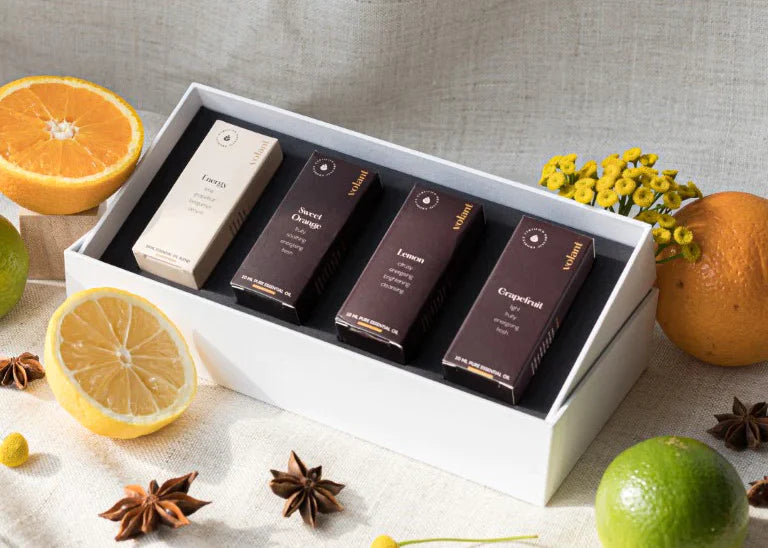Essential oils can be used as a complementary or alternative treatment for many different allergy symptoms. The oils are derived from plants and you can apply them in many different ways, concentrating on the ones that specifically deal with whatever symptom you’re struggling with.
If sneezing, congestion and an itchy nose or watery eyes are driving you mad, read on to discover the best essential oils for allergies. Our guide tells you what essential oils are good for allergies, where we delve deeper into the studies behind their use and how you can make the most of these oils safely and effectively.
Recommended essential oils for allergies
Let’s find out what essential oils are good for allergies.
Eucalyptus
Additionally, eucalyptus essential oil is good at killing bacteria, fungi and viruses. This means that you won’t just be treating the symptoms of your allergies when you use it. You could be dealing with their cause as well.
Frankincense

Lavender
 Lavender is another one of the top essential oils for allergies because it reduces pain and inflammation and the enlargement of mucus cells. This is above and beyond its calming properties which can help you wind down enough to get some sleep.
Lavender is another one of the top essential oils for allergies because it reduces pain and inflammation and the enlargement of mucus cells. This is above and beyond its calming properties which can help you wind down enough to get some sleep.
Lavender essential oil works as a natural antihistamine, blocking what’s creating your body’s allergic reactions at the source. If your allergy symptoms include itchy, puffy eyes, then lavender essential oil is an excellent remedy.
Lemon
 Lemon is one of the best essential oils for allergies because it not only helps clear sinuses and reduces congestion but it boosts your energy levels too.
Lemon is one of the best essential oils for allergies because it not only helps clear sinuses and reduces congestion but it boosts your energy levels too.
Lemon essential oil seems to help your sinuses clear out mucus more effectively. If you struggle with a stuffy nose because of your allergies, using this essential oil may also help clear the air around you - quite literally.
Peppermint

The cooling sensation menthol gives makes us feel that our nasal passages are clearer even if there isn’t much decrease in congestion. That in itself can help us breathe better while we’re suffering from a stuffy nose. Menthol, along with camphor and eucalyptus as a blended topical ointment, may also help reduce nasal congestion.
It can also provide relief from the pain of a headache that can result from allergies and congestion. A lab study from 2015 showed that peppermint essential oil fights bacteria, one of the triggers of sinus congestion. And, if you struggle with itchiness during an allergy attack, peppermint essential oil’s cooling sensation can alleviate some of the irritation.
Roman Chamomile

This essential oil will soothe irritated sinuses while it clears excess mucus and reduces sneezing. Roman chamomile provides near instant relief for many skin conditions, and it’s also good for calming the nervous system and helping you relax and sleep better during allergy season.
Rosemary

Not only will your stress levels be reduced when you start using rosemary essential oil, but you’ll also feel less tired from your allergies too. And you won’t have to suffer from brain fog while you’re recuperating because rosemary essential oil boosts mental activity.
Tea tree

Tea tree oil can function as an antihistamine, which means it may provide relief from allergy symptoms like nasal congestion, skin inflammation and sneezing.
Research on essential oils for allergies
Aromatic herbs in the treatment of respiratory tract symptoms
A 2010 study demonstrated that treating infections of the upper respiratory tract with a spray blend of essential oils including eucalyptus, peppermint and rosemary resulted in near-instant, significant improvement in symptoms. Participants all reported a reduction in coughing and relief from hoarseness and sore throats, symptoms common in seasonal allergies.
Lavender’s allergy-fighting properties
In a mouse study published in 2014, inhaling lavender oil was shown to suppress allergic airway inflammation and the enlargement of mucus cells in mouse models of asthma.
Topical lavender essential oil has also been shown to reduce immediate allergic reactions or anaphylaxis on the ears of rats and mice, inhibiting histamine release and mast cell degranulation.
Tea Tree oil’s allergy-fighting properties
One group of authors ran several experiments on the effects of topical tea tree oil application to allergic hypersensitivity reactions. In May 2002 and June 2002, tests on mice concluded that tea tree oil reduces swelling in contact hypersensitivity reactions.
Chamomile’s allergy-fighting properties
This review reported that chamomile is a very effective anti-inflammatory agent that can treat inflammation of the mucus membranes, multiple sinusitis symptoms, and various skin conditions and has been used for hay fever in the past.
In 2005, a study on mice found that a chamomile extract greatly enhanced the effectiveness of conventional antihistamine medication in reducing skin itching due to allergies.
In a 2021 randomized, placebo-controlled study, it was discovered that chamomile nasal drops improved clinical symptoms and quality of life in subjects with chronic rhinosinusitis.
Chamomile has also been shown to improve headaches and migraines, which can be a symptom of allergies.
Peppermint oil’s allergy-fighting properties
One study found that peppermint oil had a relaxing effect on the tracheal smooth muscle. This means that the oil helps reduce the contractions that make us cough.
Interestingly, menthol, one of the main components on peppermint, has a subjective cooling effect and is reported to facilitate breathing with no measurable effect in nasal mucosa temperature or how open the nasal passages actually are, according to a study in 18 healthy subjects.
An ointment containing menthol, eucalyptus and camphor seemed to cool and decongest subjects’ nasal passages and improve their sleep, again without actually exerting any measurable nasal effects, according to another study.
Pruritis, or itchy skin, is another symptom of allergies. Topical peppermint essential oil has been shown to reduce pruritis gravidarum or itchy skin in pregnant women when used twice daily over 2 weeks.
And if your allergy symptoms include headaches, topical peppermint oil might be the perfect remedy that’s as effective as certain painkillers, according to one study.
The effects of lemon-based nasal spray on rhinitis
Research published in 2012 demonstrated that a lemon-based nasal spray saw marked improvement in the treatment of allergic rhinitis. The cause of itching, nasal congestion, a runny nose and sneezing, these results are promising for allergic rhinitis sufferers affected by these symptoms.
In addition, hay fever sufferers with grass pollen allergies experienced improved nasal flow thanks to a lemon-containing nasal spray, according to a 2016 study in Phytotherapy Research.
In the American Journal of Rhinology & Allergy, a 2014 study found that a blend of four essential oils including eucalyptus and lemon helped clear mucus more effectively from the respiratory tract, which is a great help to those with bronchitis and rhinosinusitis.
Frankincense’s allergy-fighting properties
A 2016 review discussed the anti-inflammatory and expectorant properties of frankincense, particularly in illnesses like bronchitis and sinusitis. This is because this condition causes the airways to swell while it infects the sinus, which is a common issue for people suffering from allergies. Inhaling frankincense may also reduce the risk of asthma.
Using essential oils for allergies
Once you know what essential oils are good for allergies, you can use them in a variety of different ways to treat the symptoms you’re experiencing. Each method has its own particular benefits:
Topical application
Adding oils to your bath
The recommended dilution rate for essential oils when you want to use them in your bath is between 5 and 20 drops per tablespoon of carrier oil.
Direct inhalation
If you are prone to allergies, keep a bottle in your handbag or carry a vapor inhaler to use when you need it most.
Using oils in your diffuser
Depending on the oils you choose, they can help purify the air while calming your sinuses and airways, reducing inflammation and helping you to move mucus out of your nose and lungs.
Household spray
Safety tips when using essential oils for allergies
There is no regulatory body that oversees the packaging, purity and quality of essential oils. This is why it’s so important to use a responsible retailer like Volant that delivers cruelty-free, ethically sourced, 100% pure, certified organic and sustainable products.
If you’re allergic to many things, have a particularly sensitive olfactory system or suffer from severe allergies, using essential oils may trigger an unintended response.
Perform a patch test before using any essential oil topically to see if you’re sensitive or allergic to that particular essential oil - even one that is supposed to help with allergies.
It’s always recommended that you chat with your doctor or allergist before you begin any kind of essential oil treatment. This will also help you determine whether or not the essential oils you’re considering using interact in any way with whatever chronic or over-the-counter medication you may be taking.
Points to keep in mind when using essential oils
- You may have an allergic reaction to one of the essential oils for allergies outlined in this article. To ensure you don’t, always do a patch test. Create a dilution of essential oil and a carrier oil and then apply it to unbroken skin, like your forearm. If you don’t have any reaction in 24 hours, you can consider it safe to use. Test each oil this way before you begin using it.
- Never apply pure essential oil directly to your skin. It’s potent and may cause a burn or a rash.
- Don’t ingest essential oils.
- Use essential oils with caution around pets and children and if you are pregnant or breastfeeding.
- Make sure the essential oils you’re using are free from harmful synthetics and chemicals. Volant’s oils are 100% pure and organic.
FAQs
What essential oils are good for allergies?
Eucalyptus, lavender, peppermint, rosemary, frankincense, lemon, Roman chamomile and tea tree essential oils can all be helpful for allergies.
Where do I apply essential oils for seasonal allergies?
Diffusing essential oils aromatically is the most effective method of using them to combat allergies. However, if your allergic reactions include hives, rashes or headaches, you can dilute the essential oils and apply them topically to the areas of concern.
Does a diffuser help with allergies?
Yes. Putting the right essential oil in your diffuser can help to clear allergic symptoms like respiratory irritation and congestion.
How long do essential oils last in the air?
This varies, with top notes like eucalyptus, lavender and peppermint lingering for an hour or two, while middle notes like rosemary and chamomile can remain for between two and four hours.
What happens if you don't dilute essential oils?
Significant irritation and even burning to your mucus membranes, skin and/or respiratory tract can occur if you don’t dilute essential oils properly.
Make essential oils for allergies work for you
If you start using the best essential oils for allergies with responsibility and care, you may well find one that benefits you. People have been using essential oils for thousands of years now to address all manner of complaints, and there’s no reason that they won’t work for you.
The secret behind their efficacy is that essential oils bypass the digestive system and enter the bloodstream more quickly. The liver then metabolizes the oils after use rather than before use, as is the case with other medicines taken by mouth.
The fact that they are made from plants that have strong antiviral, antibacterial and antifungal properties is another benefit, along with the fact that these plants usually have an anti-inflammatory component as well.
Our bodies can use all these advantages as it heals, and our immune systems benefit hugely from the extra boost.
Volant’s range of essential oils is ideal for alleviating the symptoms of allergies and reducing the chances of reactions occurring in the first place. Being 100% pure and organic, they’re the perfect natural alternative or complementary protocol to help you through your allergy woes.





